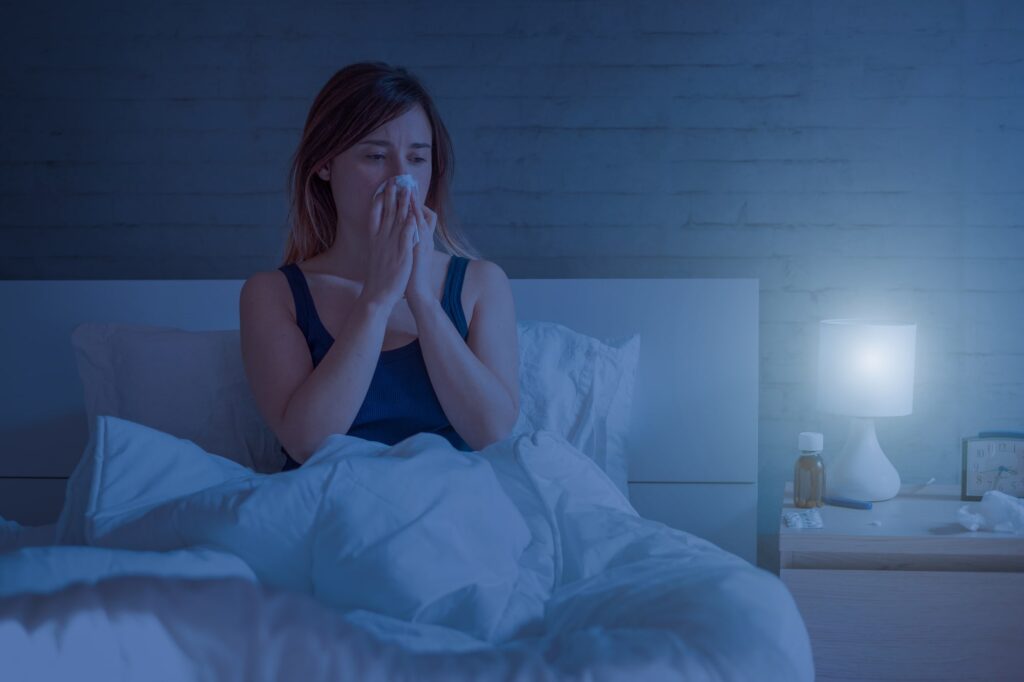The most common allergies that affect sleep
Is a stuffy or runny nose preventing you from getting a good night’s sleep? Find out how allergies affect sleep and how you can manage symptoms.

What are allergies
Allergies refer to a wide range of conditions. When the body overreacts to a substance that is harmless to most people, an allergic reaction, or allergy, occurs. These substances are often referred to as allergens or ‘triggers’ — because they are known to trigger an allergic reaction.
Most common allergies affecting sleep
One of the most common forms of allergies is hay fever (also known as allergic rhinitis). Symptoms can include sneezing, itchy or watery eyes, itchy or runny nose, congestion, cough and post-nasal drip — all of which can contribute to a poor night’s sleep.
Hay fever is a common condition that affects millions of Australians. It is usually a seasonal condition and is often worse during spring and autumn. This is known as seasonal hay fever. However, hay fever can occur at any time of the year, which is also known as perennial hay fever.
How do allergies affect sleep?
Allergies affect sleep in many ways. You may experience uncomfortable symptoms such as sneezing, coughing and a postnasal drip that can make it hard for you to rest. In addition, your nasal passages can become congested, making it hard to breathe. All of these factors can make it hard for you to get to sleep and stay asleep. They may also interfere with your sleep quality.
Individuals with allergic rhinitis are also more likely to suffer from sleep issues, such as increased snoring, poor sleep efficiency and increased risk for sleep apnoea. And of course, if you sleep poorly, you’re more likely to suffer the effects of sleep deprivation, including:
- fatigue
- irritability and poor mood
- poor memory
- weakened immunity
- compromised thinking and concentration.
What triggers allergies?
An important part of managing your hay fever symptoms and ensuring you get a good night’s sleep is identifying what you are allergic to, and avoiding the trigger where possible.
Common seasonal triggers include pollen and spores from fungi and moulds, while common triggers for perennial hay fever include animal dander, dust mites and cockroaches
How to reduce the impact of allergies
Where possible, avoid your triggers. If you have pets, ensure they stay out of your bedroom. Wash your bedding regularly and pay attention to dusting.
Invest in a hypoallergenic mattress which can help prevent allergies. At BedGuard, all our mattresses are made from hypoallergenic material so you can breathe easier.
You can also speak to your pharmacist about allergy medications that may help you manage symptoms. Some preparations include a night-time formula that is designed to help you sleep. Of course, if your allergies persist, or you don’t get relief from medication, visit your doctor.
A good night’s sleep
Don’t forget that a good bedtime routine, the right environment, and a comfortable, supportive mattress can all help you get a good night’s sleep.
If you need help choosing a mattress that’s right for you, why not visit us in-store or browse online. We’d love to help.





